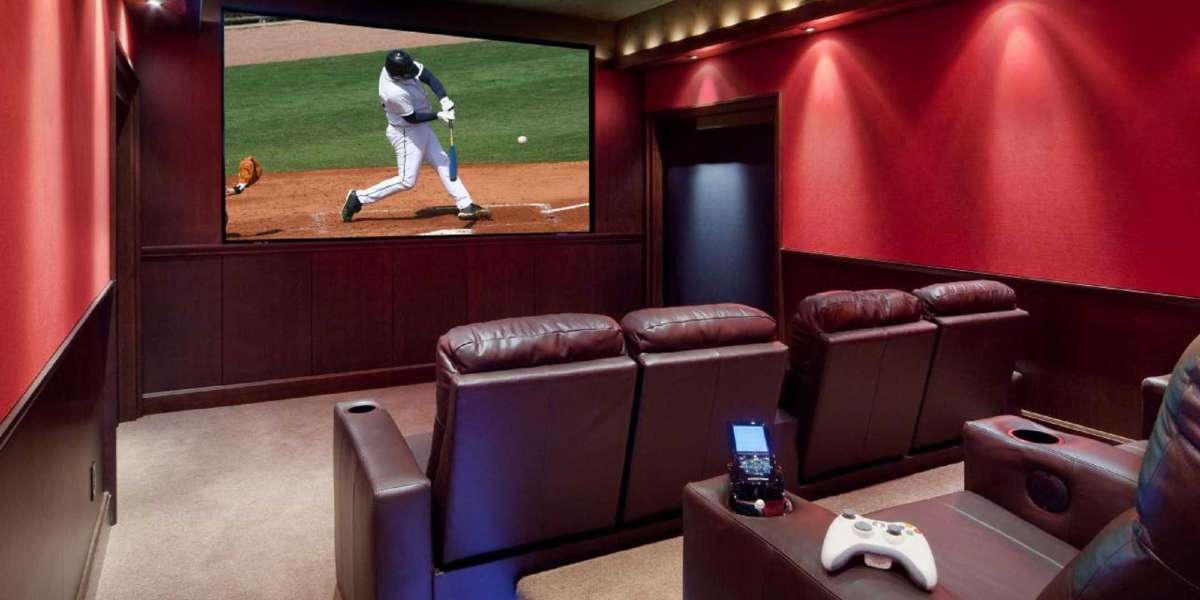If you own a 2003 Honda CR-V, you might have experienced that frustrating moment when the engine refuses to start. You turn the key, hear nothing but silence or a faint click, and wonder what went wrong this time. While there could be several reasons behind these starting issues, one culprit often lies at the heart: your Honda CRV 2003 Starter Motor. This small yet vital component can cause major headaches if it's not functioning correctly. Let’s dive into why your starter motor may be causing trouble and how to spot the signs before they lead to more significant problems.
Understanding the Role of the Starter Motor in a Honda CRV 2003
The starter motor is a vital component in your Honda CRV 2003. It serves as the initial force that gets your engine running. When you turn the ignition key, the starter engages and spins the flywheel, allowing the engine to start.
This small yet powerful device relies on electrical energy from the battery to function effectively. Insufficient power or connection issues can lead to problems. Understanding this relationship between electricity and mechanical action is essential for diagnosing faults.
When functioning correctly, a starter motor operates quietly and efficiently. However, wear and tear over time can hinder its performance. Recognizing its role helps identify potential issues before they escalate into more significant concerns with your vehicle's ignition system.
Honda CRV Starter Motor Replacement: Factors to Consider
Several factors come into play when considering Honda CRV Starter Motor Replacement. First, identify whether the issue truly lies with the starter motor. A thorough diagnostic can save you from unnecessary replacements and expenses.
Quality is crucial when selecting a new starter motor. Opt for OEM parts or reputable aftermarket options to ensure longevity and compatibility with your vehicle. Lower-quality components may lead to premature failure, causing more headaches.
Labor costs should be factored in if you're not a DIY enthusiast. Professional installation adds up but guarantees proper handling of sensitive electrical systems in your CRV. Balancing cost, quality, and installation can help ensure your new starter motor performs brilliantly immediately.
Electrical Issues That Can Affect Starter Motor Performance
Electrical issues can severely hinder the performance of your starter motor Honda CRV 2003. A weak or corroded connection in the wiring can impede electrical flow, making it difficult for the starter to engage correctly. Check all connections regularly to ensure they are clean and tight.
Another common problem is a blown fuse linked to the starting system. If this occurs, your vehicle won’t start. Refer to your owner’s manual for proper fuse specifications and replacement procedures.
Voltage drops from damaged cables or poor grounding can also affect performance. Insufficient voltage means your starter motor may not receive enough power to crank the engine effectively. Inspecting these components will help maintain optimal operation and avoid frustrating starting problems.
Battery and Alternator Problems Leading to Starting Issues
A weak battery or failing alternator can significantly impact the performance of your starter motor in a Honda CRV 2003. The starter won't engage properly if the battery doesn’t provide enough power. You may hear clicking sounds, which indicate insufficient electrical flow.
The alternator is responsible for recharging the battery while you're driving. If it malfunctions, your battery might not receive an adequate charge, leading to starting issues. This situation creates an endless cycle in which both components struggle to function effectively.
Regularly checking both the battery and alternator helps prevent unexpected breakdowns. Look for warning signs like dimming headlights or dashboard alerts indicating electrical problems. Catching these issues early can save you from costly repairs down the line.
Worn-Out Starter Motor Components and Their Impact
Worn-out components can significantly affect the performance of your starter motor in a Honda CRV 2003. Over time, parts like the solenoid, brushes, and armature degrade due to wear and tear. When these components malfunction, you'll notice sluggish starts or complete failure.
When you turn the key, the solenoid acts as a switch that engages the starter motor. It may not provide enough power to activate the motor if worn out. Similarly, worn brushes can lead to poor electrical contact and reduced efficiency.
An aging armature can also hinder rotation speed, resulting in inadequate cranking power for your engine. Addressing these issues early on is essential for maintaining reliable starting performance in your vehicle.
How Weather Conditions Can Affect Your Engine Starter Motor Honda CR-V
Weather can significantly impact the performance of your Engine Starter Motor Honda CR-V. Cold temperatures, for instance, can thicken engine oil and make it harder for the engine to turn over. This extra strain on the starter motor may lead to starting issues.
Conversely, excessive heat can also create problems. High temperatures can cause battery fluid to evaporate, leading to reduced efficiency. A weakened battery directly affects how well your starter motor operates when you try to start your vehicle.
Humidity is another factor that shouldn’t be overlooked. Moisture can corrode electrical connections and components within the starter system, hindering its ability to function correctly. Observing weather conditions will help you anticipate potential issues with your Honda CR-V’s starter motor.
Diagnosing a Faulty Starter Motor Step by Step
Diagnosing a faulty starter motor in your Honda CRV 2003 can save you time and money. Start by checking for any clicking sounds when you turn the key. A single click indicates a problem with the starter motor or its connections. Next, inspect the battery. Ensure it’s fully charged and that terminals are clean and tight. If everything looks good, bypass the ignition switch to see if the starter engages directly.
If you still have issues, use a multimeter to test the voltage at the starter solenoid while someone turns the key. If no power reaches it, your wiring might be damaged or corroded somewhere along the line. This step-by-step approach will help pinpoint whether your starter is truly causing issues.
Temporary Fixes to Start Your Honda CRV 2003 in an Emergency
When your Honda CRV 2003 has starter motor issues, getting it running in an emergency becomes a priority. While a permanent fix requires professional attention, these temporary solutions might help you start the car when stranded.
Tapping the Starter Motor
A worn-out starter motor may have stuck components. Lightly tap it with a tool like a wrench or hammer while someone turns the ignition. This can free up the gears and allow the engine to crank. Avoid excessive force to prevent damage.
Jump-Starting the Battery
A weak or dying battery can mimic starter motor failure. Use jumper cables to connect your CRV’s battery to a healthy one from another vehicle. Ensure proper connections and try starting the engine. If it cranks, the issue may be battery-related.
Bypassing the Ignition Switch
Faulty ignition switches can interrupt the power to the starter. Use a screwdriver to bridge the starter solenoid terminals (if accessible) to send direct current. Exercise caution, as this method risks electrical shorts.
Checking and Cleaning Connections
Corroded or loose battery and starter connections can prevent starting. Inspect terminals and cables, cleaning any corrosion with a wire brush. Tighten loose connections to ensure proper current flow.
Push-Starting (Manual Transmission Only)
If your CRV has a manual transmission, push-starting may work. Turn the ignition on, press the clutch, and push or roll the car downhill. Release the clutch in second gear to engage the engine. This won’t work for automatic transmissions.
Remember, these are temporary fixes—seek professional help for a permanent solution.
When to Repair vs. Replace the CRV Starter Motor
Deciding whether to repair or replace the CRV Starter Motor can be tricky. A simple repair may suffice if you notice occasional clicking sounds or sluggish starts. Often, these symptoms indicate minor issues like faulty wiring or poor connections that can be resolved without replacing the entire unit.
However, replacement might be the better option if your starter motor has been failing consistently and is more than five years old. Frequent breakdowns increase your vehicle's downtime and could lead to further complications.
Also, consider any visible wear on components such as brushes or bearings. If significant damage is present, investing in a new starter motor will save you from repeated repairs and ensure reliable performance when needed.
Preventative Maintenance Tips for a Long-Lasting Starter Motor
Regular maintenance ensures your starter motor Honda CRV 2003 remains in optimal condition. Start by checking the battery connections periodically. Loose or corroded terminals can lead to starting issues, so ensure they’re clean and securely fastened.
Additionally, keep an eye on your vehicle’s electrical system. A healthy alternator ensures that your battery stays charged, directly impacting the starter motor's performance. If you notice dimming lights or a sluggish engine crank, it might be time for a check-up.
Consider scheduling routine inspections with a trusted mechanic. They can assess the starter motor and related components like wiring and fuses for wear and tear. Early detection of potential problems can save you from unexpected breakdowns.
Conclusion
Understanding the issues surrounding your starter motor can save you time and frustration. If your Honda CRV 2003 is experiencing starting difficulties, pinpointing the problem is crucial. Regular maintenance checks are key to prolonging the life of your Honda CRV 2003 Starter Motor. Address any signs of wear early to avoid more extensive repairs down the line. Stay informed about potential problems and solutions related to your vehicle's starter system. Being proactive will ensure smoother starts and dependable performance for years, whether it's electrical issues or weather-related impacts.
FAQs
Understanding the mechanics behind your Honda CRV's starter motor is crucial for diagnosing starting issues. Here are five frequently asked questions that can provide further insight into common concerns regarding this essential component.
What are the signs of a failing starter motor?
Common signs include a clicking noise when turning the key, dimming lights, or complete silence when attempting to start. These symptoms often indicate that your starter motor may be having trouble engaging.
How long does a CRV Starter Motor last?
On average, CRV Starter Motor can last between 100,000 and 150,000 miles. However, factors like driving conditions and maintenance practices can significantly affect its lifespan.
Can I jump-start my vehicle if the starter is faulty?
While jump-starting might temporarily get your engine running if there’s an issue with battery power, it won’t fix problems within the starter itself. If you suspect faults within the unit, it's best to have it inspected promptly.
Is replacing a starter motor something I can do myself?
If you're comfortable working on vehicles and have essential tools, replacing your car's starter could be achievable with some guidance. However, those unfamiliar should seek professional assistance to avoid complications.
What maintenance tips will extend the life of my Honda CRV starter?
Check electrical connections regularly for corrosion and ensure that battery terminals are clean and tight. Additionally, routine inspections of related components like batteries and alternators help catch potential issues early on.
Related Business Listings |






